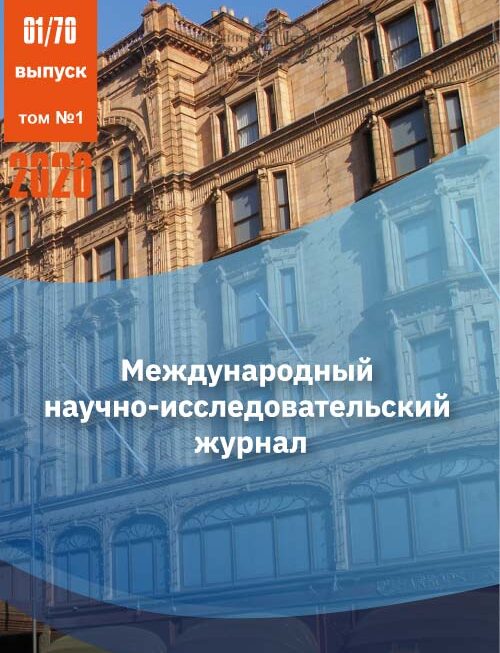LEXICAL AND PHONETIC FEATURES OF ENGLISH AND RUSSIANS LULLABIES
Abstract
The author in his article raises the question of a comparative analysis of the features of English and Russian lullabies in terms of vocabulary and phonetics. The main problem in the work is the question of comparing the phonetic and lexical level of folklore of the English and Russian ethnic groups. The purpose of the study is to compare the features of phonetic and vocabulary organized lullabies of English and Russian languages. Collision songs were not analyzed in terms of comparing phonetic and lexical organization. The results of the study were revealed about the similarities and differences between English and Russian lullabies
References
2. Варгасова Е. Спи, моя радость, усни… http://www.shkolazhizni.ru/archive/0/n-3719/
3. Литвин Э.С. Песенные жанры русского детского фольклора. М., Всемирная литература, 2017.
4. Мартынова А.Н. Детский поэтический фольклор. СПб., Композитор, 2016.
5. Мартынова А. Н. Особенности колыбельных восточно-славянских песен. М., Русский язык,, 2016.
6. Мельников М.Н. Русский детский фольклор. М., Просвещение, 2017.
7. Новый англо-русский словарь. /Под ред.
В. К. Мюллера,-9-е изд.-М.,2015.
8. Детский поэтический фольклор. Антология. СПб., Русский язык, 2017.
9. Варганова В.В. Русские народные песни. М., Оникск 21 век ,2018.
10. Исматуллаева И.В. Русские народные колыбельные песенки. М., АСТ - Пресс, 2015.
11. Науменко Г.М. Русское народное детское музыкальное творчество. М., Советский композитор, 2018.
12. Английские колыбельные песни [Электронные песни]. URL:http://www.babycentre.co.uk/little-boy-blue-lullabylyrics
13. Macmillan Dictionary [ Электронный ресурс]. – URL: https://www.macmillandictionary.com
Copyright (c) 2020 A. V. Bashkova

This work is licensed under a Creative Commons Attribution-NoDerivatives 4.0 International License.
CC BY-ND
A work licensed in this way allows the following:
1. The freedom to use and perform the work: The licensee must be allowed to make any use, private or public, of the work.
2. The freedom to study the work and apply the information: The licensee must be allowed to examine the work and to use the knowledge gained from the work in any way. The license may not, for example, restrict "reverse engineering."
2. The freedom to redistribute copies: Copies may be sold, swapped or given away for free, in the same form as the original.







